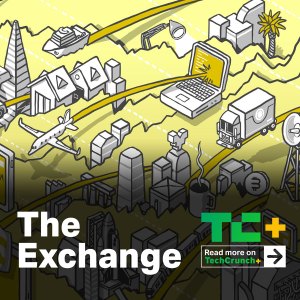What is a startup? It’s a question so picked over at this point that it feels like the only answer is it depends.
That’s fair. In the past, we might have said that once a private-market company earns a $1 billion valuation, it is no longer a startup. But with venture capitalists and crossover investors turning an ever-increasing number of less mature startups into unicorns, that demarcation line has lost its rigidity.
The Exchange explores startups, markets and money.
Read it every morning on TechCrunch+ or get The Exchange newsletter every Saturday.
The $1 billion unicorn term has lost most of its meaning. It was once an indicator of a startup demonstrating abnormal success, the marker of a positive outlier to a degree that the company in question deserved the boosterish sobriquet.
But now, with 907 unicorns out there, the term really just means “startup that should have its shit together.” Which is less useful.
 What about a $10 billion deciding line? Would that be a useful filter to apply to the startup masses, allowing us to filter out the “must pay attention tos” from the “companies heating up” and the “potential but few material results yets”? Yes, but only because there really isn’t a better option.
What about a $10 billion deciding line? Would that be a useful filter to apply to the startup masses, allowing us to filter out the “must pay attention tos” from the “companies heating up” and the “potential but few material results yets”? Yes, but only because there really isn’t a better option.
I am not the first person to noodle on this point: Dan Primack decided to call the group of startups worth $10 billion or more “dragons” earlier this year; Crunchbase News has a great riff on decacorns here from earlier this week that we’ll cite again shortly; and the term “decacorn” is simply not new.
“Unicorn” has lost its heft thanks to massive rarity dilution. If we turn the clocks back to 2013, when Aileen Lee wrote the post inventing the term, there were fewer unicorns being created than there are decacorns today — in a nutshell, that’s how the startup game has changed in the last eight or nine years.
Here’s Lee from the past:
- We found 39 companies belong to what we call the “Unicorn Club” (by our definition, U.S.-based software companies started since 2003 and valued at over $1 billion by public or private market investors). That’s about .07 percent of venture-backed consumer and enterprise software startups.
via https://AiUpNow.com November 23, 2021 at 10:57AM by Alex Wilhelm, Khareem Sudlow,
